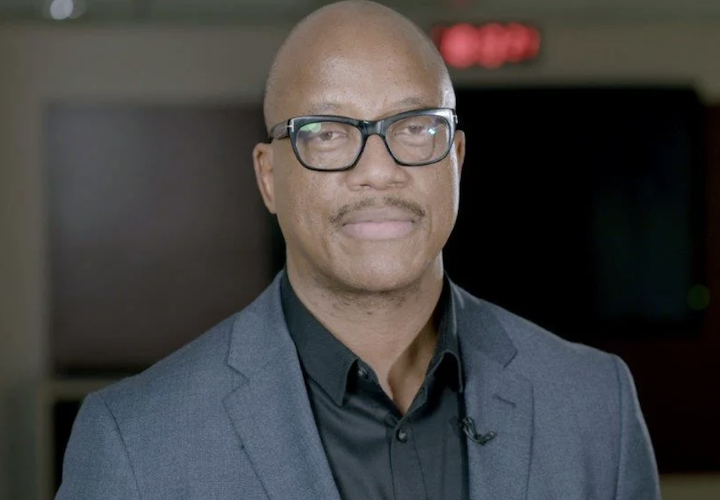There may be no one better informed about the integration of place, health and wellbeing in the capital than Professor Kevin Fenton, London region director of the Office for Health Improvement and Disparities and the Greater London Authority’s statutary health adviser.
It was in a previous job with Southwark Council that he gathered the experience he brings to his current roles. As Executive Director of Place and Wellbeing in a borough undergoing significant regeneration – think Elephant & Castle and London Bridge – he was able to explore, test and learn about how place-shaping affects health and wellbeing.
Asked to share his top three insights gained during that time, he starts by describing the “untapped opportunities” he helped release within local government to integrate place with health, describing the “dividends that are generated” to all stakeholders in regeneration when local communities are connected and cohesive.
Next he describes specific examples of how the shaping of places has an impact on the health of local residents. Access to healthy food, clean air, green and blue spaces are now recognised and accepted as determinants of health which, when located unevenly, manifest in health inequalities.
But perhaps the greatest knowledge was gained from working directly with local people. “Placeshaping cannot be done without the input and involvement of local communities,” he says, observing that, historically, community engagement has been “transactional”. But when there is instead a more holistic approach – one that respects past, present and future – new places can nurture the connectivity and cohesion that supports health and wellbeing.
Fenton commends the work of Lendlease at Elephant and Castle for continually developing programmes of work to bring community members into each stage of the regeneration scheme. He concedes that he had limited opportunity to create the necessary structures for data collection and analysis while in Southwark, but says he hopes to do so for regeneration projects all over the capital in his City Hall work.
Joining the Mayor’s office at the start of the pandemic produced new and unforeseen challenges and opportunities. Fenton likens this period to running a laboratory, with repeated opportunities to hypothesise and test interventions, and to work with others as part of the process. He points to relationships built between business, academia and the NHS to keep Londoners healthy and safe during the Covid period, saying they had real impact and must be made the most of when meeting the challenges of the post-pandemic world, particularly with regard to the capital’s health inequalities.
During the pandemic a “health in all policies” approach was integrated into all programming within the Mayor’s office. Fenton cites his collaboration with Transport for London as a prime example of policies developed during the pandemic leading to broader thinking about public health. This includes encouraging walking and cycling within the TfL network and public messaging. Indeed, this week’s announcement from the London Assembly that TfL intends to provide information about public toilets within the network on the TfL app suggests the focus has been successfully embedded.
Fenton had plenty to say about how national, local and private sector protagonists in planning and regeneration could help improve health. At national level he wants legislation to support a housing stock that is fit for the future, providing sustainability amid a changing climate and in an ageing society. At the local level he wants to see buildings that integrates people with nature, with access to blue and green open spaces which underpin good health.
He would like developers to take a different approach to how we think about the importance and even the concept of heritage – to see it as a framework for incorporating community experience into what is built rather something NIMBYs cite in order to block new development. He makes a contrast with the health sphere in which community groups are seen as essential to defining and delivering services under the newly-defined Integrated Care Systems and cites several things that in his experience have led to better engagement.
Collecting local data creates an opportunity to refine the quality and quantity of interactions between all involved in regeneration schemes, he says, adding that community groups, who are often volunteers, value help and recognition for their activities. They can be provided with resources that encourage engagement with community groups in ways that are not, in Fenton’s words, “episodic, but evolve and develop over time, throughout the development process”.
Dedicated engagement teams can provide programmes of events for local residents, reaching out to all age groups and vulnerable people. Partnering with local schools to engage kids in the regeneration of their local area and with advocacy organisations like Age UK, and providing pop-up spaces for local charities and businesses are all approaches Fenton has seen to be effective.
As a demonstration of widespread recognition for the challenges of creating and maintaining healthy places, the World Health Organisation, along with Bloomberg Philanthropies, is spearheading the Partnership for Healthy Cities Summit. Sadiq Khan will, in March, host its inaugural meeting, which will be attended by members of the Partnership for Healthy Cities, a global network of more than 70 cities founded in 2017 dedicated to reducing non-communicable disease and injuries.
Fenton, a thoughtful and passionate advocate for better health and its promotion in the built environment and all policy areas, thinks this an exciting initiative and an opportunity to showcase how London is addressing health and health equity in the post-pandemic era.
This is an edited version of an article originally published at Listen to Locals.
On London strives to provide more of the kind of journalism the capital city needs. Become a supporter for just £5 a month. You will even get things for your money. Details here.
